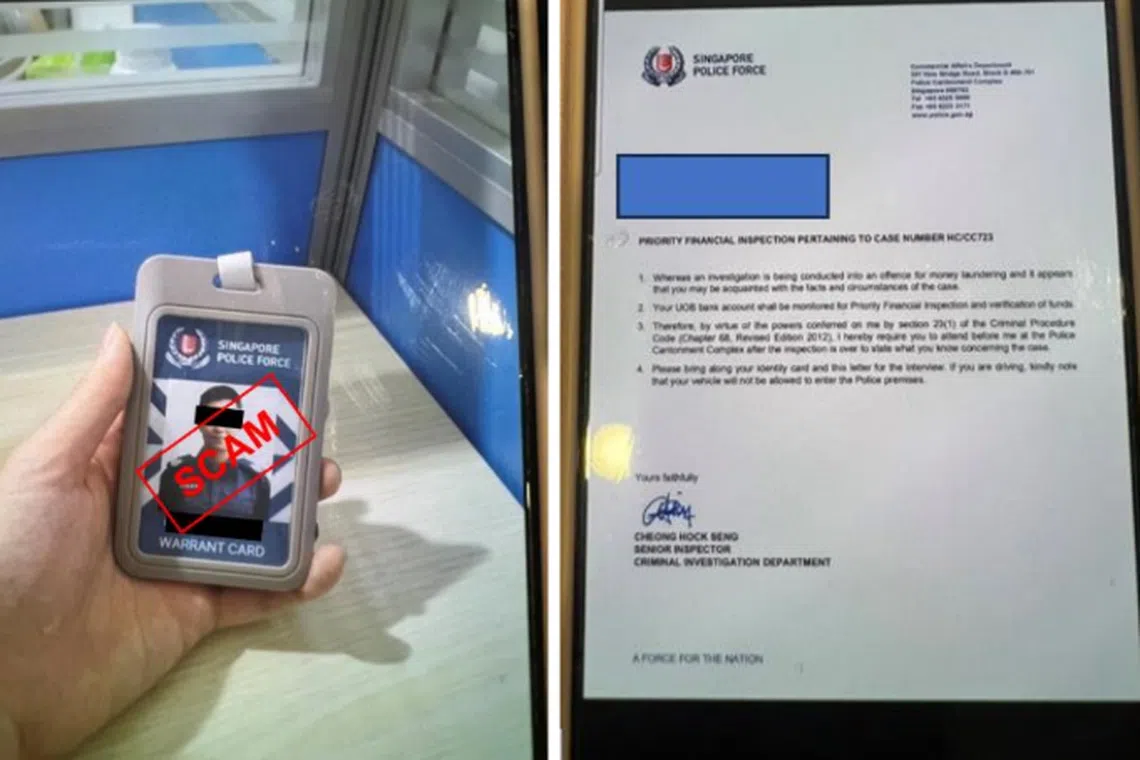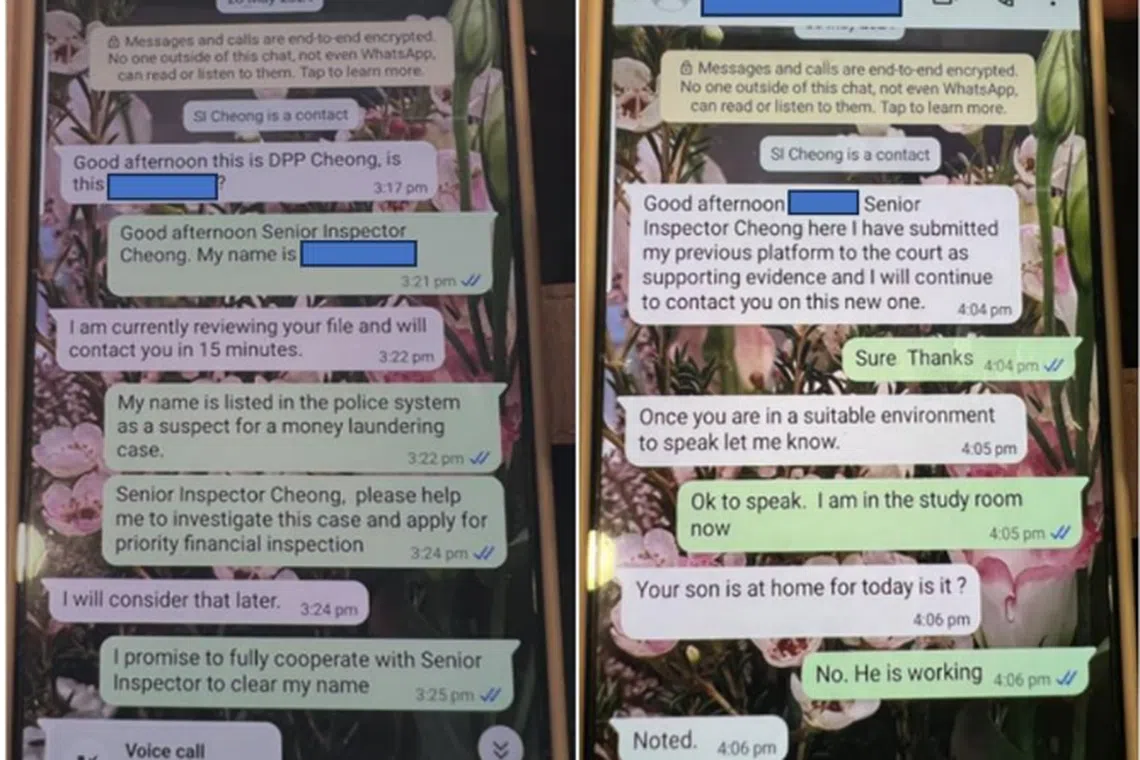At least $10.6m lost to scammers posing as government officials and bank officers in June
Sign up now: Get ST's newsletters delivered to your inbox

Examples of fake documents provided by scammers.
PHOTO: SINGAPORE POLICE FORCE AND MONETARY AUTHORITY OF SINGAPORE
Follow topic:
SINGAPORE – Sixty-three people fell prey to scammers impersonating government officials and bank officers in June, with losses amounting to at least $10.6 million.
The Monetary Authority of Singapore (MAS) and police said in a joint media release on July 27 that they have also seen an uptick in the scam variant.
The victims would first receive an unsolicited call from a scammer impersonating a bank officer typically claiming to be from a local bank. The scammer would then ask the victim to verify banking transactions that the victim had allegedly conducted via bank accounts.
When the victim denies knowledge of such transactions, the scammer would transfer the call to a second scammer who would pose as a government official, usually from the police or MAS.
The second scammer would accuse the victim of being involved in criminal activities such as money laundering.
The conman would ask the victim to transfer a sum of money to specified bank accounts under the guise of assisting in investigations.
Next, they would assure the victims by claiming that the accounts were safety accounts designated by the Government.
In some cases, the victim would be transferred to a third scammer under the excuse of further investigations by officials, and asked to transfer more monies to specified bank accounts.
Victims would realise that they had been cheated only when the scammers became uncontactable or when they subsequently verified the situation with the banks or police through official channels, said the joint statement.
It added that government officials will never ask members of the public to transfer money to bank accounts over the phone or through text message.

Screenshots of WhatsApp messages between a scammer and a victim.
PHOTO: SINGAPORE POLICE FORCE AND MONETARY AUTHORITY OF SINGAPORE
Government officials will also not request people’s personal, banking, Singpass or CPF-related information. They will also not ask people to click on links that lead to bank websites, or install apps or software from third-party websites.
You can add security features such as two-factor authentication for online accounts to protect yourself, and check for scam signs with official sources like the anti-scam helpline, the police and MAS advised.
Do not disclose personal information such as Singpass and CPF-related information to anyone through the phone, e-mail or messaging applications.
For more information on scams, visit www.scamalert.sg
Anyone with information on such scams may call the police hotline on 1800-255-0000 or submit information online at www.police.gov.sg/iwitness



